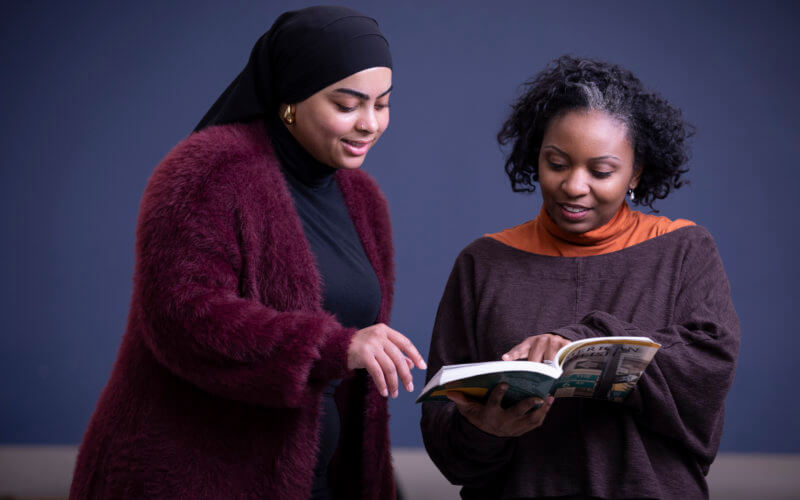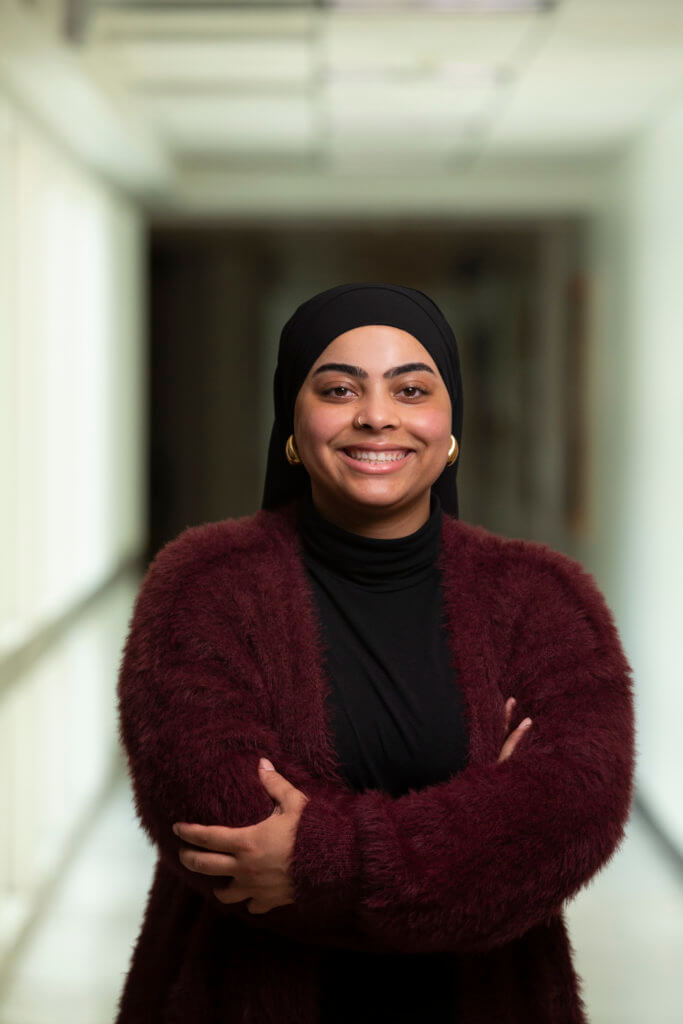
Niyyah Jackson’s love for Black women’s literature took root when she was a child. As a young girl, she wished she could read more books by Black female authors that featured Black characters.
“I wanted to know that Black women’s voices were present in literature because literature served to educate, support and provide safety for me,” said Jackson, a Class of 2024 English major with a minor in African American studies.
Jackson’s research project focuses on literature’s depictions of Black women, colorism and dynamics with Black masculinity.
Through Cal State Fullerton’s Mellon Mays Undergraduate Fellowship program, which is designed to prepare students to pursue doctorates in the humanities, Jackson had the opportunity and resources (mentoring, workshops, graduate school preparation and annual stipend) to conduct her research alongside a faculty expert. The program was established at CSUF in 2018 through a $444,319 grant from the Andrew W. Mellon Foundation, and Jackson was selected as a fellow in the 2022-24 cohort.
Discovering Her Research Passion
Jackson, who plans to pursue her doctorate and become a professor teaching African American women’s literature, is being mentored by Bonnie Williams-Farrier, associate professor of English, comparative literature and linguistics.
With guidance from Williams-Farrier, Jackson learned how to conduct and analyze qualitative research. She chose 25 intergenerational Black female interviewees from the ’60s, ’70s and contemporary women to help her understand the impact the Black community has had on their evolving relationship with femininity.
Jackson reviewed such literature as slave narratives, explaining that female slaves were among the first African American writers.

“I found that there are a vast amount of layers in Black culture that have a deep impact on the practice of Black femininity as a belief and practice,” said Jackson, who was inspired by Williams-Farrier’s research on African American literature, rhetorical traditions, and intersections of gender and language in relationship to Black female discursive practices.
“When I enrolled in her Language and Power in African American Culture class, it was her research and teaching that sparked a desire in me to dedicate portions of my professional research to Black women’s contributions to African American language,” explained Jackson.
Developing Skill Sets in the Humanities
Wanting to develop Jackson’s writing abilities, Williams-Farrier invited Jackson to become a peer tutor for the English department’s Writing Center.
“Tutors read over hundreds of papers every semester. It gives her the opportunity to see different genres, styles and processes of writing that will contribute to her growth,” said Williams-Farrier, director of the Writing Center. “I observed the center for many years before I became the director, and I noticed there were no African American tutors. I took the initiative to recruit our African American students in English to work in the Writing Center. I’m proud to say that Niyyah is one of the first three African American tutors I was able to recruit.”
Jackson also became an assistant director for CSUF’s Language Policy Ally program, which encourages students to collaborate with faculty on language policy and writing studies, orate presentations to writing intensive courses, and co-facilitate a workshop with the Language Policy Committee for the National Conference on College Composition and Communication. She strived to find innovative solutions that tackle linguistic racism in academia.
“The Mellon Mays fellowship program and my mentor, Professor Williams-Farrier, provided me with support, leadership and guidance that has allowed me to further my research, present my research at various conferences, and acquire new opportunities as a student and researcher to ultimately lead me in the right direction toward my future,” said Jackson.